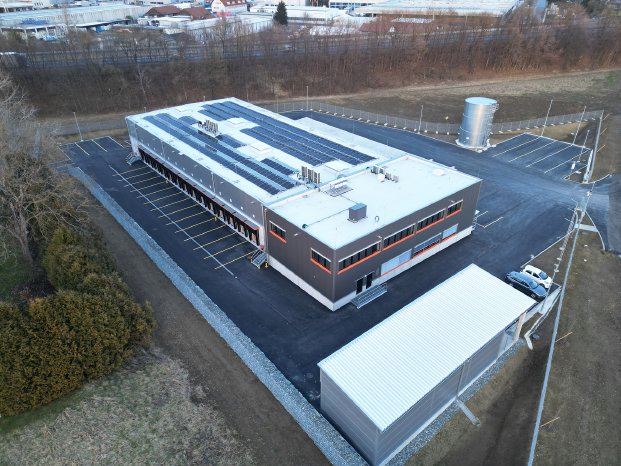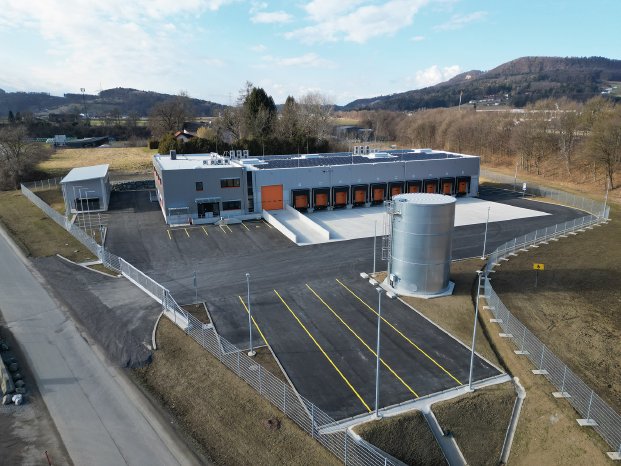- Two and a half times the previous capacity
- Ecological design ensures low long-term operating costs
- Particularly important for the quality requirements of pharmaceutical logistics: active temperature control at 2 to 8 and 15 to 25 degrees
More energy needed for active temperature control to maintain pharmaceutical quality
The active temperature control of the TMA network at 2 to 8 and 15 to 25 degrees Celsius ensures the quality of the pharmaceuticals, but also requires more energy than conventional transport networks. "This is why investing in energy-saving technology and equipment pays off in the long run," explains Günther. For this reason the building is being fitted with heavy-duty thermal insulation and a solar power system on the roof of the 1,100 square metre facility. The electricity can be used to power the heat pump for heating and cooling, as well as the charging points for electric vehicles that TMA has already planned. Expensive LED technology is used for the lighting. But it is very economical to run. "And all the rain that falls on the roofs and sealed surfaces of the 10,000 square metre site does not go into the sewers," says Günther. "There's a pond on the site that collects all the rainwater and allows it to seep away in a controlled way."
Up to 40 people will be employed by trans-o-flex ThermoMed Austria at the Lebring site. Styria, Carinthia, parts of Burgenland and East Tyrol will be served from here in future. In total, trans-o-flex ThermoMed Austria has four sites. In addition to Lebring, these include Großebersdorf (Lower Austria), Regau (Upper Austria) and Fritzens (Tyrol). The sites are connected to the German ThermoMed network as well as to the partner networks in Belgium, Luxembourg and the Netherlands.



